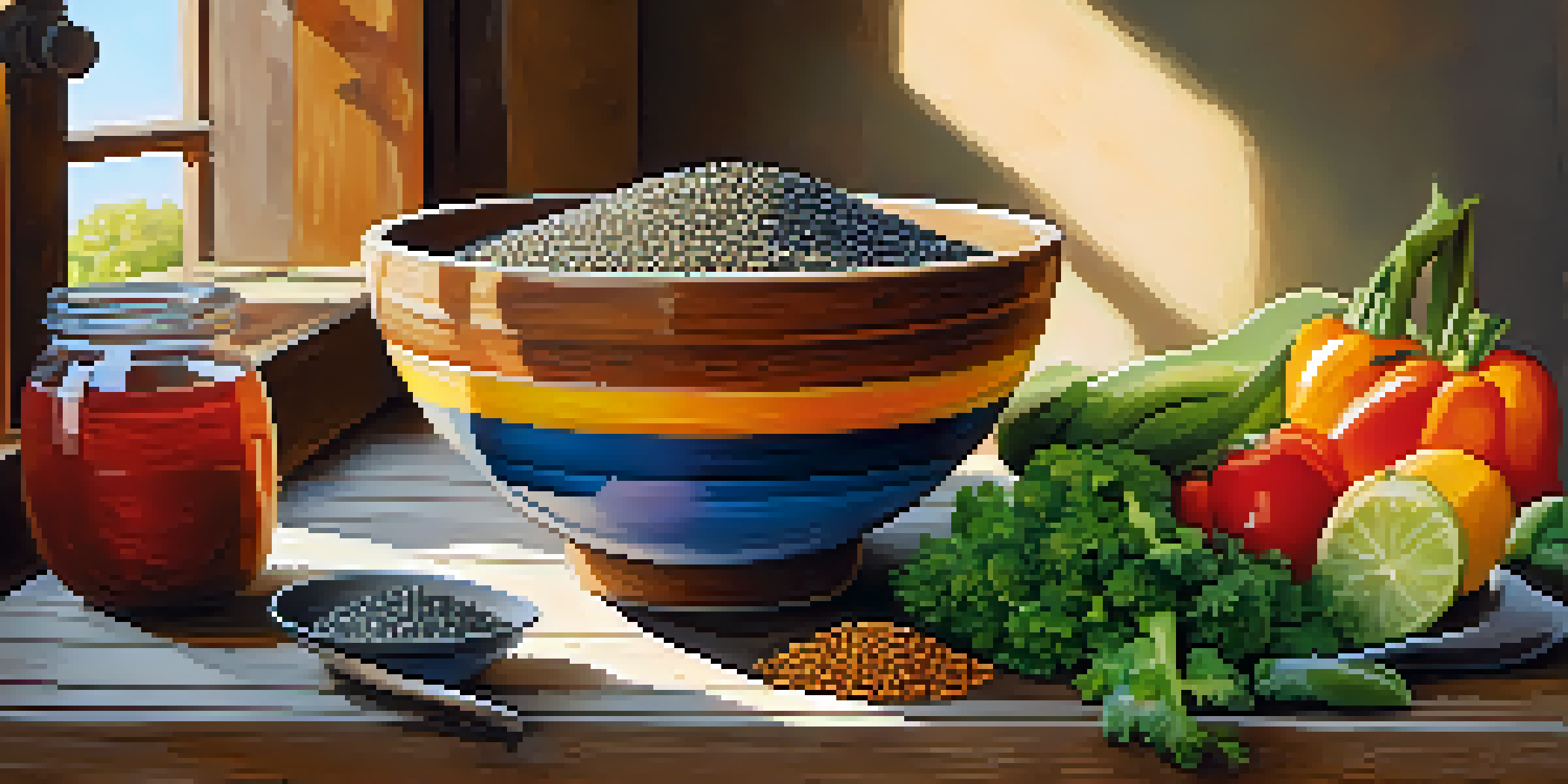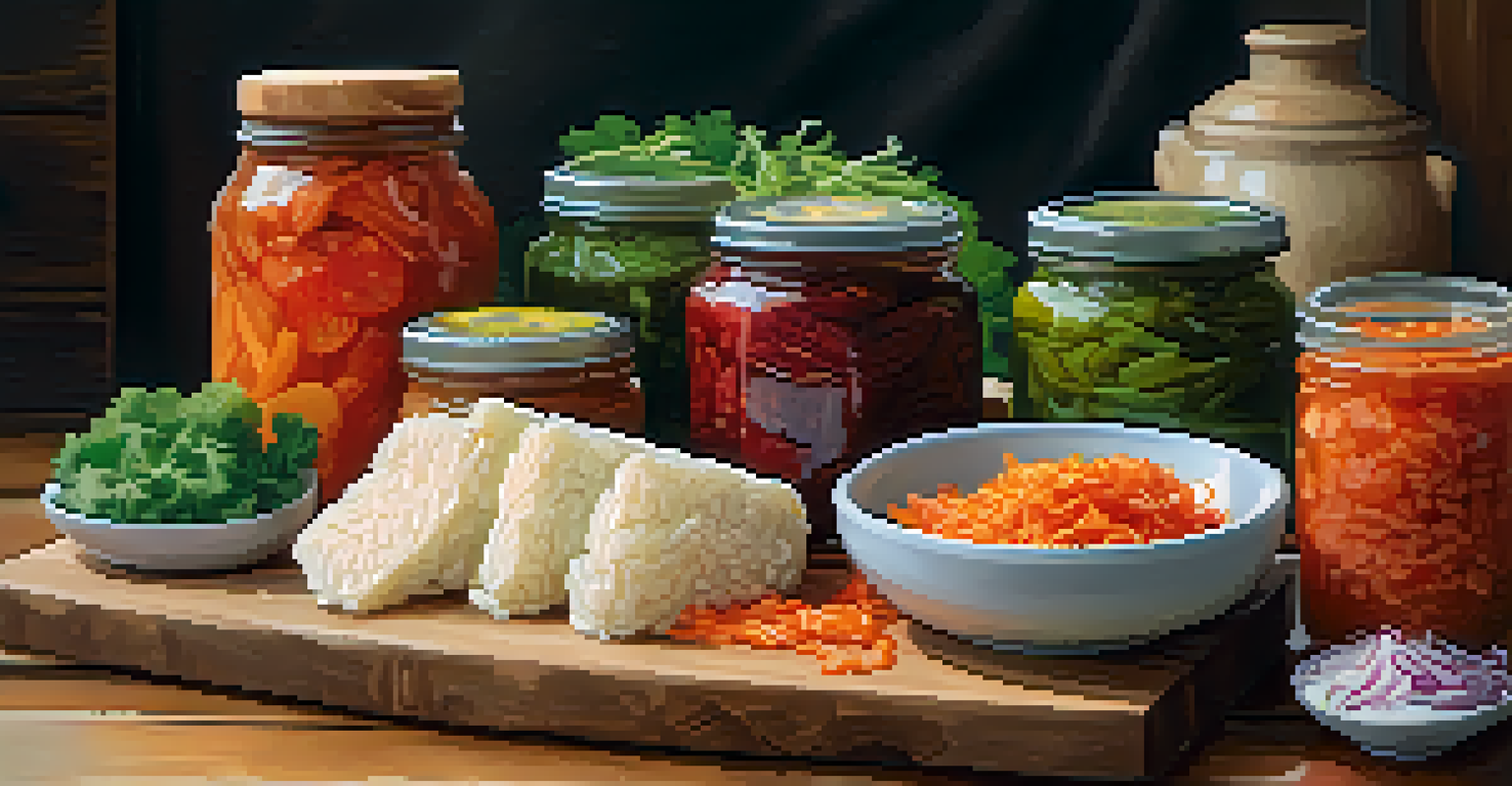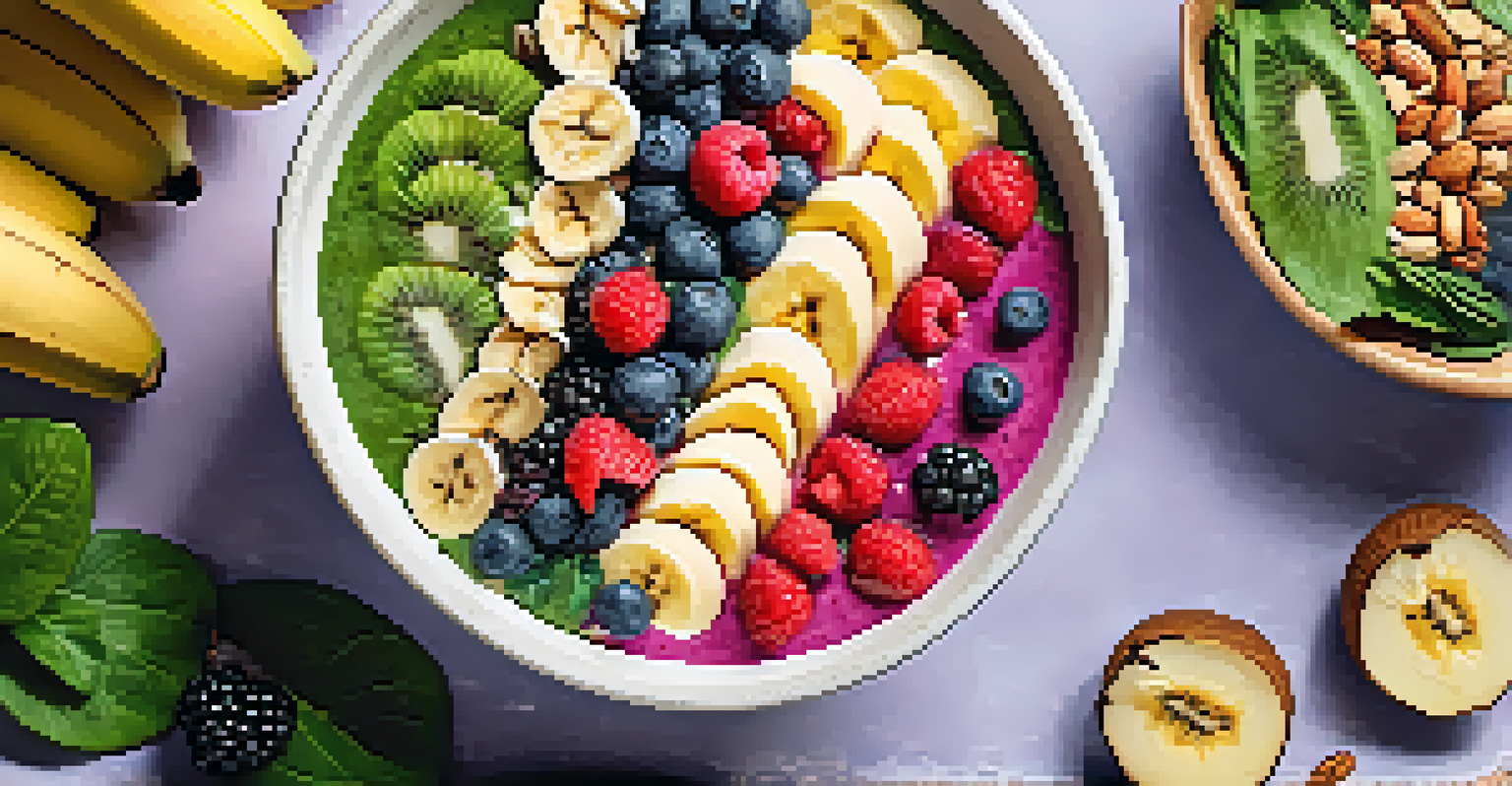Vegan Foods That Boost Gut Health: A Comprehensive Guide

Understanding Gut Health and Its Importance
Gut health refers to the balance of microorganisms living in our digestive tract, which significantly impacts overall well-being. A healthy gut can enhance digestion, boost immunity, and even influence mood and mental health. When our gut is out of balance, it can lead to issues like bloating, digestive discomfort, and even chronic diseases.
The gut is the seat of all feeling and emotion, and it is no surprise that our mental health is closely tied to our gut health.
Maintaining gut health is essential not only for digestion but also for nutrient absorption. The gut microbiome, composed of trillions of bacteria, plays a crucial role in breaking down food and synthesizing vital vitamins. The right balance of these microorganisms can help us feel our best both physically and mentally.
As we explore various vegan foods that support gut health, it’s important to remember that a diversified diet rich in plant-based nutrients is key. Incorporating a variety of foods can help ensure that we nourish our gut with the right types of fibers and probiotics, promoting a thriving digestive system.
Fermented Foods: Probiotics for Your Gut
Fermented foods are powerhouses of probiotics, which are beneficial bacteria that support gut health. Examples include sauerkraut, kimchi, and tempeh, all of which can introduce live cultures into our digestive system. These foods not only add flavor but also enhance the balance of gut bacteria, making them a delicious addition to any meal.

Incorporating fermented foods into your diet can be as simple as adding a scoop of kimchi to your rice bowl or enjoying a serving of sauerkraut with your sandwiches. The process of fermentation breaks down food into more digestible forms, allowing our bodies to absorb nutrients better. Plus, these foods are often rich in vitamins and minerals, giving you an extra nutrient boost.
Gut Health Influences Well-Being
A balanced gut microbiome is essential for digestion, immunity, and even mental health.
If you're new to fermented foods, start with small amounts to see how your body reacts. Gradually increasing your intake can help your gut adapt to these powerful probiotics, promoting overall gut health over time.
Fiber-Rich Foods: Fuel for Your Gut Microbes
Fiber plays a crucial role in maintaining gut health, serving as food for our beneficial gut bacteria. A fiber-rich diet helps to regulate digestion and prevent constipation, allowing for a smoother digestive process. Foods like lentils, beans, chia seeds, and whole grains are excellent sources of dietary fiber to include in your meals.
Food is not just fuel; it’s information. It talks to your DNA and tells it what to do.
When we consume fiber, our gut bacteria ferment it, producing short-chain fatty acids that are essential for gut health. These fatty acids can reduce inflammation, support the gut lining, and even improve our immune response. So, the more fiber-rich foods we include in our diets, the better we can nurture our gut bacteria.
To maximize fiber intake, aim to incorporate a variety of sources into your daily meals. For instance, a hearty lentil soup or a chia seed pudding can be both satisfying and beneficial for your gut. Remember, consistency is key; gradually increase fiber intake to avoid digestive discomfort.
Prebiotic Foods: Feeding Your Good Bacteria
Prebiotics are non-digestible fibers that feed the good bacteria in your gut, helping them thrive and multiply. Foods like garlic, onions, asparagus, and bananas are rich in prebiotics and can enhance the effectiveness of probiotics. Including these foods in your diet can create a favorable environment for beneficial bacteria to flourish.
Think of prebiotics as the fertilizer for your gut garden; they help your healthy bacteria grow stronger and more resilient. By consuming both prebiotics and probiotics, you're optimizing your gut's ecosystem and promoting better digestive health. This combination can also lead to improved absorption of nutrients from the foods you eat.
Diverse Diet Supports Gut Microbes
Incorporating a variety of fermented, fiber-rich, and prebiotic foods nourishes beneficial gut bacteria.
To incorporate more prebiotic foods, try adding sliced bananas to your morning oatmeal or tossing some garlic into your stir-fry. These simple changes can make a significant impact on your gut health over time.
Antioxidant-Rich Fruits and Vegetables for Gut Health
Fruits and vegetables are not only rich in vitamins and minerals but also packed with antioxidants that can support gut health. Colorful produce like berries, spinach, and sweet potatoes contain compounds that help reduce inflammation and protect the gut lining. Eating a variety of these foods can contribute to a balanced and healthy gut microbiome.
Antioxidants work by combating oxidative stress and inflammation, which can harm our gut health if left unchecked. By including more antioxidant-rich foods in your diet, you're providing your body with the tools it needs to maintain a healthy gut. This can also lead to improved digestion and overall well-being.
Aim to fill your plate with a rainbow of fruits and vegetables to maximize your antioxidant intake. A smoothie with spinach, berries, and a banana can be a delicious way to start your day while boosting your gut health.
Nuts and Seeds: Healthy Fats for Optimal Gut Function
Nuts and seeds are excellent sources of healthy fats, fiber, and protein, all of which can benefit gut health. Foods like almonds, walnuts, flaxseeds, and chia seeds not only provide essential nutrients but also promote a healthy gut microbiome. Their high fiber content helps regulate digestion and can prevent constipation.
In addition to fiber, nuts and seeds contain omega-3 fatty acids, which have anti-inflammatory properties. These healthy fats can help soothe the gut lining and support overall digestive health. Including a handful of nuts or a sprinkle of seeds on your meals can enhance both flavor and gut health.
Hydration Enhances Digestive Function
Staying hydrated is vital for efficient digestion and nutrient absorption in the gut.
To incorporate more nuts and seeds, consider adding them to smoothies, salads, or even as a topping for yogurt. These small additions can make a big difference in your gut health journey.
Hydration and Its Role in Gut Health
Staying hydrated is crucial for maintaining gut health, as water plays a key role in digestion. Proper hydration helps to break down food, allowing for better nutrient absorption and smoother elimination of waste. It's essential to drink enough water throughout the day to support your digestive system.
In addition to plain water, consuming hydrating foods like cucumbers, oranges, and soups can contribute to your daily fluid intake. These foods not only provide hydration but also deliver vitamins and minerals that support gut health. Remember, a well-hydrated body can function more efficiently, including your digestive system.

To make hydration a habit, try carrying a reusable water bottle with you or setting reminders to drink water throughout the day. Your gut will thank you for the extra care!
Creating a Balanced Vegan Diet for Gut Health
A balanced vegan diet is key to supporting gut health, as it ensures you’re getting a wide range of nutrients. By incorporating fermented foods, fiber-rich options, prebiotics, antioxidants, healthy fats, and staying hydrated, you can create meals that nourish your gut microbiome. Planning meals that include diverse plant-based foods can help you achieve this balance.
Consider trying new recipes that incorporate a variety of ingredients; for example, a quinoa salad with colorful veggies and a tahini dressing can be both nutritious and gut-friendly. Meal prepping can also be beneficial, allowing you to easily whip up gut-healthy meals on busy days. Remember, the goal is to enjoy the process of exploring new foods.
As you embark on this journey towards better gut health, be patient with yourself and listen to your body. Each person's gut is unique, and it may take time to discover the best foods that work for you. With a little creativity and commitment to a balanced vegan diet, you can significantly enhance your gut health.